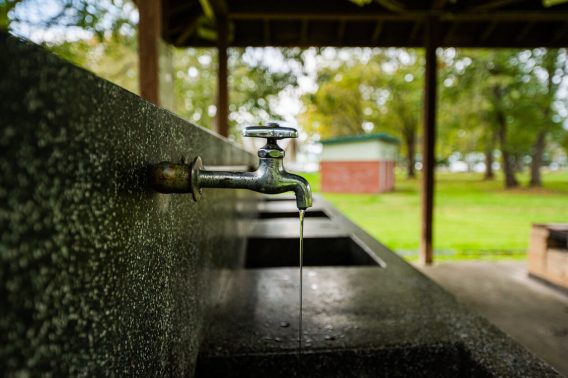EPA, Army Announce Pilot Project to Test for PFAS in Private Wells Near Military Bases

The Environmental Protection Agency has announced a new sampling project to test for forever chemicals in private wells near military installations in several states.
The project, which is a joint operation between the EPA and U.S. Army, has been spurred by concerns that per-and polyfluoroalkyl substances may have spread and that water wells of residents living near bases are impacted.
“PFAS pose significant risks to drinking water supplies and public health, which is why the EPA and the Army are testing water from wells in communities near Army installations to determine if these dangerous forever chemicals are polluting drinking water,” David M. Uhlmann, the EPA’s Assistant Administrator for Enforcement and Compliance Assurance, said in a statement.
The testing is currently a pilot program, with the Army and EPA willing to consider expansion depending on the results of the initial sampling.
This joint-effort project identified nine installations out of a total list of 235 locations as priorities and will have nearby private water wells tested.
The bases are in Alabama, California, Georgia, Kentucky, North Carolina, Oklahoma and Tennessee.
PFAS lawsuits have been on the rise over potential drinking water contamination and alleged links to serious health problems. Aqueous film-forming foam litigation also claims that first responders who were exposed to firefighting foam have been impacted.
Forever Chemicals Identified in Private Wells Near North Carolina’s Fort Liberty
Shortly before the EPA announced the pilot program, U.S. Army Environmental Command officials had identified PFAS in private wells near the Fort Liberty military installation in North Carolina.
According to CityView, 12 private wells within a mile of the base’s perimeter were tested and four exceeded PFAS levels allowed by the EPA.
The EPA issued its first ever national drinking water standard in April in an effort to protect against PFAS exposure. The rules, which will take full effect in five years, lay out regulations and legally enforceable levels in drinking water for six different types of PFAS.
The chemicals found around Fort Liberty resulted from AFFF, a foam used for firefighting. There are currently nearly 10,000 AFFF lawsuits in multidistrict litigation claiming that first responders have developed cancer and other serious health conditions from exposure to the chemicals.
Fort Liberty is amongst the nine installations that the EPA/Army pilot project will test.
Lawsuits Claim PFAS Exposure Leads to Cancer, Other Health Conditions
There is significant litigation underway involving the use of forever chemicals concerning potentially contaminated water supplies and what their health impacts may be.
Water contamination lawsuits claim that people who have been exposed to PFAS in drinking water have developed serious health conditions such as testicular, kidney and liver cancer. Plaintiffs have also claimed that ulcerative colitis can result from exposure.
BASF Corporation, which is a chemical producer associated with PFAS, agreed to a $316.5 million settlement in May with several public water systems after PFAS was detected in their drinking water.
AFFF in particular is one of the main sources of forever chemical contamination in water. Main defendants in litigation have been BASF, DuPont, 3M Company and Tyco Fire Products.
Tyco agreed to a $750 million settlement with public water systems in April.
Editor Lindsay Donaldson contributed to this article.




